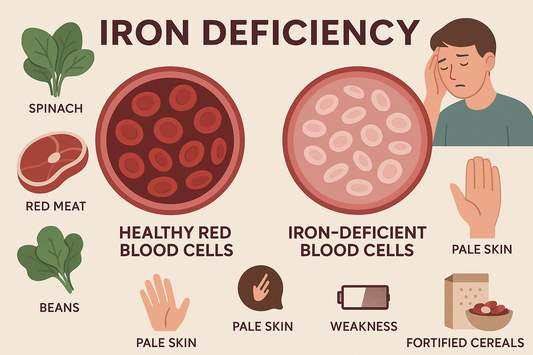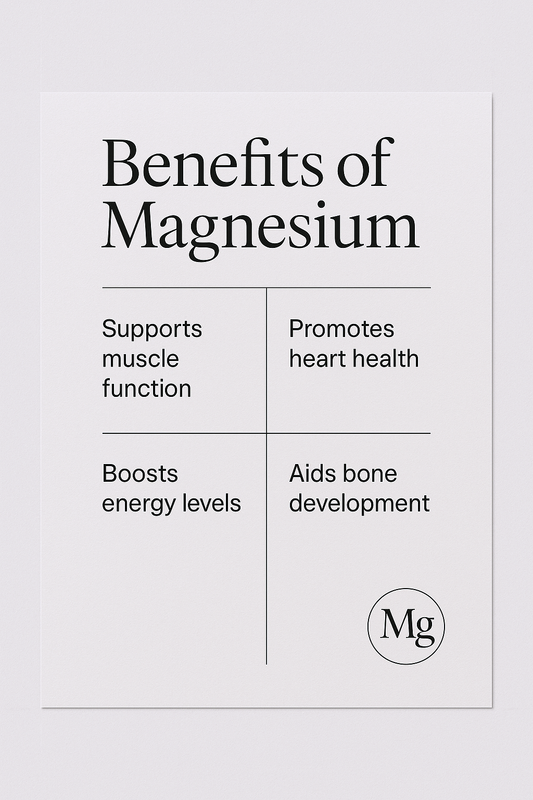Neuropathy, characterized by nerve damage that causes pain, tingling, numbness, and weakness, affects millions of people worldwide. While the underlying causes vary from diabetes to vitamin deficiencies to autoimmune conditions, targeted nutritional supplementation can provide significant support for nerve health and symptom management. Understanding which supplements have scientific backing and how they work can help you develop an effective natural approach to managing neuropathy symptoms.
Understanding Neuropathy and Its Nutritional Foundations
Peripheral neuropathy occurs when nerves outside the brain and spinal cord become damaged, most commonly affecting the hands and feet. The symptoms can range from mild tingling to severe burning pain, significantly impacting quality of life and daily functioning. While medical treatment addresses underlying causes, nutritional support plays a crucial role in nerve repair and symptom management.
Nerve cells have unique nutritional requirements due to their specialized structure and function. They need specific vitamins for energy metabolism, antioxidants to protect against oxidative damage, and minerals for proper electrical conduction. When these nutrients are deficient or when increased demands exist due to disease, supplementation can help support nerve health and potentially slow progression.
Different types of neuropathy may respond better to specific nutritional approaches. Diabetic neuropathy often benefits from blood sugar management and antioxidant support, while chemotherapy-induced neuropathy may respond to nerve-protective compounds. Nutritional neuropathies caused by vitamin deficiencies typically show the most dramatic improvement with appropriate supplementation.
The progression of neuropathy can sometimes be slowed or even partially reversed with early intervention and comprehensive nutritional support. However, nerve regeneration is a slow process, often taking months to show improvement, making patience and consistency essential for success.
B-Complex Vitamins: The Foundation of Nerve Health
B vitamins are essential for proper nerve function, with deficiencies in several B vitamins directly causing neuropathy. These water-soluble vitamins work together to support energy metabolism, myelin sheath formation, and nerve signal transmission.
Vitamin B1 (thiamine) deficiency is a well-known cause of neuropathy, particularly in people with diabetes or alcohol use disorders. Thiamine is crucial for nerve energy metabolism, and even mild deficiencies can contribute to nerve dysfunction. Benfotiamine, a fat-soluble form of thiamine, has shown particular promise for diabetic neuropathy, with studies demonstrating improved nerve conduction and reduced pain at doses of 300-600mg daily.
Vitamin B6 (pyridoxine) plays essential roles in nerve function, but both deficiency and excess can cause neuropathy. Most people with neuropathy benefit from moderate B6 supplementation (25-100mg daily), but higher doses can actually worsen nerve damage. The active form, pyridoxal-5-phosphate (P5P), is often better tolerated and more effective than regular pyridoxine.
Vitamin B12 deficiency is one of the most common nutritional causes of neuropathy, particularly affecting people with digestive issues, vegetarians, or older adults with reduced absorption. Methylcobalamin, the active form of B12, is preferred for neuropathy treatment, with typical doses ranging from 1000-5000mcg daily. Sublingual or injection forms may be necessary for people with absorption problems.
Folate works closely with B12 in nerve function and DNA synthesis. Methylfolate, the active form, is preferred over synthetic folic acid, particularly for people with genetic variations affecting folate metabolism. Typical doses range from 400-1000mcg daily, always in combination with adequate B12.
B-complex supplements provide all B vitamins together, which is often the most effective approach since these vitamins work synergistically. Look for complexes that contain active forms of the vitamins and avoid mega-dose formulations that could cause imbalances.

Alpha-Lipoic Acid: The Universal Antioxidant
Alpha-lipoic acid (ALA) is one of the most researched supplements for neuropathy, particularly diabetic neuropathy. This powerful antioxidant works in both water and fat-soluble environments, providing comprehensive protection against oxidative damage that contributes to nerve dysfunction.
ALA has been extensively studied in clinical trials for diabetic neuropathy, with doses of 300-600mg daily showing significant improvements in pain, numbness, and nerve conduction studies. The antioxidant effects help protect nerves from glucose-induced damage while also improving blood flow to nerve tissues.
The mechanism of action involves multiple pathways, including reducing oxidative stress, improving mitochondrial function in nerve cells, and enhancing glucose uptake. ALA also helps regenerate other antioxidants like vitamin C and vitamin E, amplifying its protective effects.
R-lipoic acid is the naturally occurring form and may be more bioavailable than synthetic alpha-lipoic acid, though both forms have shown benefits in studies. Taking ALA on an empty stomach improves absorption, though this may cause stomach upset in some people.
Starting doses of 100-200mg daily and gradually increasing to 300-600mg can help minimize potential side effects like nausea or skin rash. Effects typically become noticeable after 4-8 weeks of consistent use, with continued improvement over several months.

Acetyl-L-Carnitine: Supporting Nerve Energy and Regeneration
Acetyl-L-carnitine (ALC) supports nerve health through multiple mechanisms, including energy production, nerve growth factor synthesis, and protection against toxic damage. This amino acid derivative has shown particular promise for chemotherapy-induced neuropathy and diabetic neuropathy.
Clinical studies have demonstrated that ALC can improve nerve conduction velocity and reduce pain in various types of neuropathy. Doses of 1500-3000mg daily have shown benefits, with the higher end of this range often more effective for severe symptoms.
The acetyl group in ALC allows it to cross the blood-brain barrier more easily than regular L-carnitine, making it particularly effective for nerve tissue. ALC supports mitochondrial function in nerve cells, helping maintain the high energy demands required for proper nerve function.
For chemotherapy-induced neuropathy, some studies suggest that ALC may help prevent nerve damage when started before chemotherapy treatment. However, timing and coordination with oncology treatment is crucial, so this approach requires medical supervision.
ALC is generally well-tolerated, though some people may experience mild gastrointestinal upset or restlessness if taken too close to bedtime. Taking doses with meals can help minimize digestive side effects.

Omega-3 Fatty Acids: Anti-Inflammatory Nerve Support
Omega-3 fatty acids, particularly EPA and DHA, provide anti-inflammatory support that can help reduce the inflammation contributing to neuropathy symptoms. These essential fats also support nerve membrane health and may help with nerve regeneration.
Research suggests that omega-3 supplementation can reduce inflammatory markers associated with neuropathy while improving nerve conduction and reducing pain. Doses of 2-4 grams daily of combined EPA and DHA have shown benefits in various studies.
The anti-inflammatory effects of omega-3s may be particularly beneficial for autoimmune neuropathies or neuropathies associated with chronic inflammatory conditions. The membrane-stabilizing effects can also help improve nerve signal transmission.
High-quality fish oil or algae oil supplements provide the most direct source of EPA and DHA. Look for products that have been tested for purity and provide at least 1000mg of combined EPA and DHA per serving.
Taking omega-3 supplements with meals improves absorption and reduces the likelihood of fishy aftertaste or digestive upset. Effects on neuropathy symptoms typically take 8-12 weeks to become noticeable.
 : The Calming Mineral for Nerve Function
: The Calming Mineral for Nerve Function
Magnesium plays crucial roles in nerve function, including nerve signal transmission, muscle relaxation, and pain regulation. Many people with neuropathy are deficient in magnesium, and supplementation can provide significant symptom relief.
Magnesium helps regulate calcium channels in nerve cells, which is important for proper nerve signal transmission. Deficiency can lead to hyperexcitability of nerves, contributing to pain and abnormal sensations characteristic of neuropathy.
Different forms of magnesium have varying absorption rates and effects. Magnesium glycinate is well-absorbed and less likely to cause digestive upset, making it ideal for daily supplementation. Magnesium threonate may be particularly beneficial for nerve health due to its ability to cross cellular membranes more easily.
Typical doses range from 200-400mg daily, though some people may need higher amounts. Start with lower doses and gradually increase to assess tolerance. Taking magnesium with meals can help prevent digestive side effects.
Topical magnesium preparations, such as magnesium oil or Epsom salt baths, can provide localized relief for neuropathy pain while avoiding potential digestive side effects of oral supplementation.

Vitamin D: The Sunshine Vitamin for Nerve Health
Vitamin D deficiency has been associated with increased neuropathy risk and symptoms, while adequate levels support nerve health and may help reduce neuropathic pain. This vitamin-hormone plays important roles in nerve development and function.
Studies have shown that people with neuropathy often have lower vitamin D levels, and supplementation can help reduce pain and improve nerve function. The anti-inflammatory effects of vitamin D may also contribute to its benefits for neuropathy.
Vitamin D3 (cholecalciferol) is the preferred form for supplementation, as it's more effective at raising blood levels than vitamin D2. Typical doses range from 1000-4000 IU daily, though individual needs vary significantly based on baseline levels, sun exposure, and absorption capacity.
Testing vitamin D blood levels helps determine appropriate dosing and monitor progress. Optimal levels for nerve health appear to be in the higher end of the normal range, around 40-60 ng/mL (100-150 nmol/L).
Vitamin D works best when taken with vitamin K2 and magnesium, which help ensure proper utilization and prevent potential side effects from high-dose vitamin D supplementation.
Antioxidant Compounds for Nerve Protection
Various antioxidant compounds can help protect nerves from oxidative damage while supporting repair processes. These supplements work best as part of a comprehensive antioxidant strategy.
Curcumin, the active compound in turmeric, has powerful anti-inflammatory and antioxidant properties that may benefit neuropathy. Enhanced absorption formulations using piperine or liposomal delivery systems improve bioavailability. Typical doses range from 500-1000mg daily of standardized curcumin extract.
N-acetylcysteine (NAC) supports glutathione production, one of the body's most important antioxidants. NAC has shown benefits for various types of neuropathy, particularly those involving oxidative stress. Doses of 600-1200mg daily have been used in studies.
Vitamin E, particularly the gamma-tocopherol form, provides antioxidant protection for nerve membranes. However, high doses of alpha-tocopherol alone may interfere with other tocopherols, so mixed tocopherol supplements are preferred.
Coenzyme Q10 supports mitochondrial function in nerve cells and has shown benefits for certain types of neuropathy. The ubiquinol form is better absorbed than ubiquinone, with typical doses ranging from 100-300mg daily.

Specialized Nutrients for Specific Neuropathy Types
Certain nutrients may be particularly beneficial for specific types of neuropathy based on the underlying mechanisms and causes.
For diabetic neuropathy, chromium supplementation may help improve glucose metabolism and reduce nerve damage. Doses of 200-400mcg daily of chromium picolinate or chromium polynicotinate have shown benefits in some studies.
Inositol, particularly myo-inositol, has shown promise for diabetic neuropathy by supporting nerve signal transmission and improving glucose metabolism. Doses of 2-4 grams daily have been used in clinical studies.
For alcohol-related neuropathy, enhanced thiamine supplementation with benfotiamine is particularly important, along with comprehensive B-vitamin support and liver-supporting nutrients like milk thistle.
Chemotherapy-induced neuropathy may benefit from glutamine supplementation, which can help protect nerves from toxic damage. Doses of 10-30 grams daily have been used, though timing relative to chemotherapy treatment is important.
Timing and Absorption Optimization
The effectiveness of neuropathy supplements depends significantly on proper timing, dosing, and absorption optimization strategies.
Taking B vitamins in the morning with food helps optimize absorption while preventing potential sleep disruption from their energizing effects. B vitamins work best when taken together, as they have synergistic effects and help prevent imbalances.
Fat-soluble supplements like vitamin D, vitamin E, and alpha-lipoic acid should be taken with meals containing healthy fats to optimize absorption. This also helps reduce potential digestive side effects.
Spacing out larger doses throughout the day often improves absorption and reduces side effects. For example, if taking 1000mg of acetyl-L-carnitine daily, splitting this into two 500mg doses may be more effective than taking it all at once.
Some nutrients compete for absorption, so timing separation may be beneficial. For example, taking magnesium and calcium supplements at different times can improve absorption of both minerals.
Building a Comprehensive Protocol
The most effective approach to supplement support for neuropathy often involves combining multiple nutrients that work synergistically to support different aspects of nerve health.
A foundational protocol might include a high-quality B-complex supplement, alpha-lipoic acid, and omega-3 fatty acids, providing broad support for nerve function, antioxidant protection, and inflammation control.
Additional supplements can be added based on specific needs and neuropathy type. For example, someone with diabetic neuropathy might add acetyl-L-carnitine and vitamin D, while someone with inflammatory neuropathy might emphasize curcumin and additional antioxidants.
Starting with foundational supplements and gradually adding others allows you to assess individual responses and identify which combinations work best for your specific situation.
Working with healthcare providers familiar with nutritional approaches to neuropathy can help optimize supplement protocols while ensuring safety and monitoring for interactions with medications.

Monitoring Progress and Adjusting Protocols
Tracking symptoms and progress helps optimize supplement protocols and identify which interventions provide the most benefit for your specific situation.
Keeping a daily symptom diary can help identify patterns and track improvements over time. Note pain levels, numbness, tingling, and functional abilities, as well as any side effects from supplements.
Nerve conduction studies and other objective measures can provide additional information about nerve function improvements, though these tests may not always correlate with symptom improvements.
Blood testing for nutrient levels, particularly B vitamins and vitamin D, can help guide dosing and ensure adequate levels are achieved. Some nutrients like alpha-lipoic acid don't have standard blood tests, so symptom tracking becomes more important.
Most people begin noticing improvements in neuropathy symptoms after 6-12 weeks of consistent supplementation, though some may see benefits sooner. Nerve regeneration is a slow process, so patience and consistency are essential.
Safety Considerations and Interactions
While nutritional supplements are generally safer than pharmaceutical approaches, proper attention to safety and potential interactions is important for effective neuropathy management.
Some supplements can interact with medications commonly used by people with neuropathy. Alpha-lipoic acid may enhance the effects of diabetes medications, potentially causing low blood sugar. High-dose vitamin B6 can reduce the effectiveness of certain seizure medications.
Kidney function should be considered when using supplements like magnesium or high-dose B vitamins, as impaired kidney function can lead to accumulation and potential toxicity.
Starting with lower doses and gradually increasing helps identify tolerance and reduces the risk of side effects. This is particularly important for supplements like alpha-lipoic acid or acetyl-L-carnitine, which can cause digestive upset in some people.
Regular communication with healthcare providers ensures that supplement protocols complement rather than interfere with other treatments for neuropathy or underlying conditions.
Lifestyle Integration and Comprehensive Care
Supplements work best when integrated into a comprehensive approach that addresses diet, exercise, stress management, and other lifestyle factors affecting nerve health.
A diet rich in antioxidants, healthy fats, and B vitamins provides foundational support for nerve health while enhancing the effectiveness of targeted supplementation. Avoiding processed foods, excess sugar, and inflammatory foods supports the anti-inflammatory effects of supplements.
Regular exercise, particularly activities that improve circulation and don't aggravate neuropathy symptoms, can enhance the benefits of nutritional support by improving blood flow to nerve tissues.
Stress management is crucial, as chronic stress can worsen neuropathy symptoms and interfere with nerve healing. Techniques like meditation, deep breathing, or gentle yoga can complement nutritional approaches.
Blood sugar management is essential for anyone with diabetes-related neuropathy, as poor glucose control can undermine the benefits of even the best supplement protocols.
Long-Term Expectations and Maintenance
Understanding realistic expectations and long-term management strategies helps optimize outcomes with supplement-based approaches to neuropathy.
Nerve regeneration is inherently slow, with meaningful improvements often taking 3-6 months or longer to become apparent. Early improvements may include reduced pain or tingling, while functional improvements typically take longer to develop.
Some people may experience significant improvement in symptoms, while others may find that supplements help prevent progression without dramatically improving existing symptoms. Both outcomes represent meaningful benefits in the context of neuropathy management.
Long-term maintenance supplementation may be necessary to sustain benefits, particularly for progressive neuropathies or those with ongoing underlying causes. Working with healthcare providers helps determine appropriate long-term strategies.
Periodic reassessment of supplement protocols allows for adjustments based on changing needs, symptom progression, and new research developments in nutritional support for neuropathy.
The key to successful supplement support for neuropathy lies in understanding the specific nutritional needs of nerve tissue, choosing evidence-based interventions, and maintaining realistic expectations about timelines for improvement. While supplements cannot cure neuropathy, they can provide meaningful symptom relief and support for nerve health when used as part of a comprehensive approach to neuropathy management. The combination of targeted nutrition, lifestyle modifications, and appropriate medical care offers the best opportunity for managing neuropathy symptoms and maintaining quality of life.
















